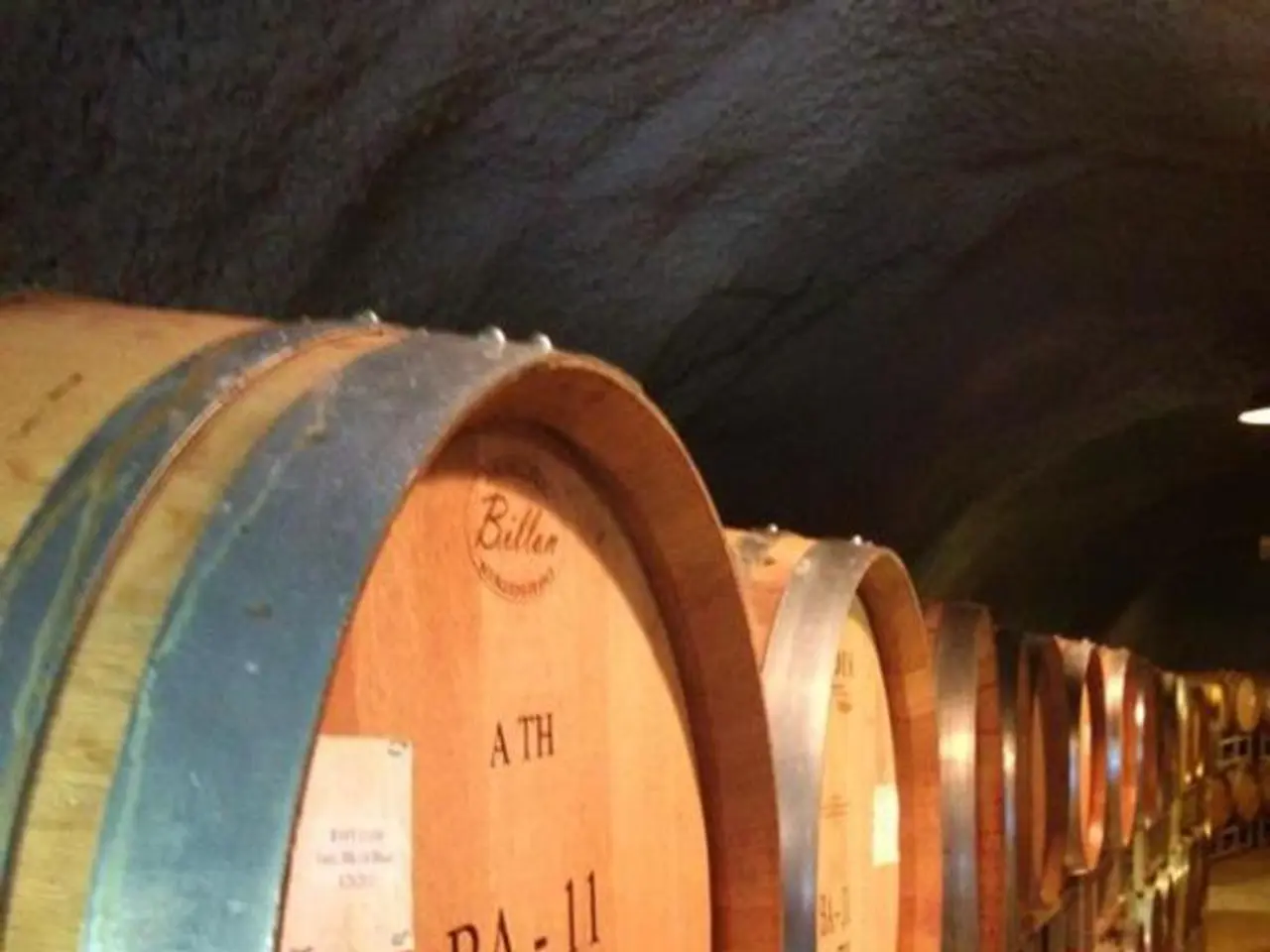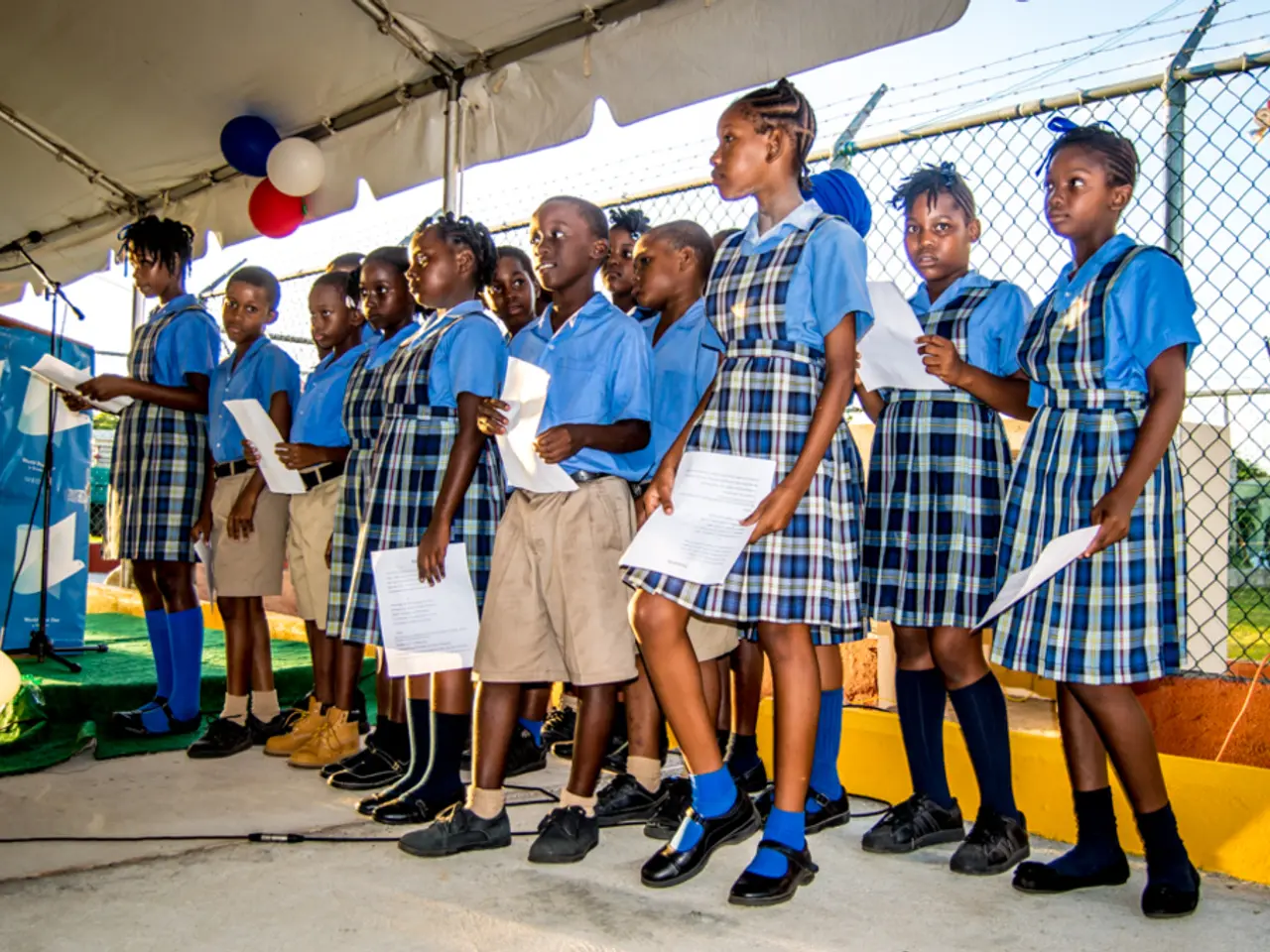Continuation of Dialogue with Iran Remains Desired by Europeans
Blowing Hot and Cold: The Nuclear Impasse Between Iran and the West
Diplomats from Germany, France, and the UK, after a grueling four-hour huddle with their Iranian counterpart, Abbas Araghtchi, maintain the prospect of further discussions over the nuclear dilemma with Tehran as viable. "The silver lining here is that we walk away with a sense that the Iranian side is open to continuing conversations on all crucial issues," said German Foreign Minister Johann Wadephul post-meeting in Geneva.
Iran signaled its readiness to rejoin the discussions. "We're up for more chats with these three European nations and the European Union, and we're all set for another meeting soon," said Araghtchi, as reported by state news agency Irna. Yet, he underlined one condition: "As long as Israel's bombardments persist, we refuse to engage with any party.”
However, uncertainty looms over whether US President Donald Trump is poised to intervene actively on Israel’s behalf in the battleground soon. Similarly, it's debatable whether Israeli Prime Minister Benjamin Netanyahu would be amenable to a sit-down with sworn adversary Iran to bring an end to the conflict.
Following a week of mutual attacks between Israel and Iran, Wadephul, French Foreign Minister Jean-Noël Barrot, and British Foreign Minister David Lammy attempted to explore chances for a diplomatic solution to the nuclear fiasco with Araghtchi in Switzerland. They endeavored to ascertain Iran's willingness to renounce its nuclear program and abandon nuclear weapons amidst heavy hostilities between the two nations.
On the eve of the negotiations, US President Trump's spokeswoman Karoline Leavitt announced that he would decide within the next fortnight whether the USA, Israel's main ally, would step in to aid Israel during the hostilities.
Wadephul is Adamant About the USA's Role in the Negotiations
Wadephul described the talks as intense. "The entire region remains in a precarious situation, and preventing further escalations and making progress in negotiations is our shared aim," he said. For the Europeans, it's a priority that they participate in these discussions. "But what truly matters is that the United States of America participates in these negotiations and is part of any solution," he added.
"Remove the Imminent Threat to Israel"
Germany is deeply apprehensive about Iran's nuclear program, expressed Wadephul. He further emphasized that Iran poses an existential threat to the State of Israel, and that this existential threat must be eliminated. Wadephul elaborated his position further in the ZDF-"heute journal", stating, "In my view, the quickest and most effective way to nullify this threat in this volatile situation is through negotiations."
"A Moment of Peril" Lammy Sets the Scene
Lammy stated the team is eager to continue diplomatic discussions with Tehran. "We're dealing with a dangerous moment," he said. He added, "It's of paramount importance that we don't spark a regional escalation of this conflict - both due to the consequences it would entail for us all, and for our citizens grappling with cost-of-living concerns."
Barrot also stated that the Europeans hope Iran will show a willingness to parley with the USA to achieve a diplomatic solution through discussions in the current crisis scenario. The risks for the Middle East region, as well as Europe, from the Israel-Iran war are considerable.
Josep Borrell Fontelles, the EU's High Representative for Foreign Affairs, also attended the parleys. Initially, the Europeans congregated among themselves at the residence of the German Disarmament Ambassador.
While the Air Force evacuated around sixty German citizens from Israel, two propeller-driven Airbus A400M aircraft carrying sixty-four passengers were en route from Tel Aviv to Germany, according to Ministry of Defense and Foreign Office declarations. Despite the ongoing hostilities, both nations' airspaces are actually closed to civilian flights.
This is the first time in the conflict that Germans have been evacuated by the Bundeswehr. Previously, there had been two charter flights, but they hadn't departed from Israel, necessitating longer ground transportation for the affected parties.
Iran's Foreign Minister, Araghtchi, had called on the international community before the meeting with the Europeans in the UN Human Rights Council to condemn Israel's onslaught on his country. “Any justification of this unjust and criminal war would be aiding and abetting,” he claimed. The Iranian accused Israel of war crimes and crimes against humanity in its actions in the Gaza Strip.
Amidst ongoing hostilities, Israel and Iran continued their assault on each other. According to the Israeli emergency service Magen David Adom, at least 23 people were hurt, three severely, in an attack on the Israeli city of Haifa. Iranian media reported an Israeli strike on the port city of Bushehr, where Iran's sole nuclear power station is stationed.
Switzerland and Britain temporarily shuttered their embassies in Tehran. The British decided to withdraw their embassy staff due to the deteriorating security situation. The Swiss Foreign Ministry cited the “intensity of military operations in Iran and the unstable situation" as the reasons for their decision.
The UN Refugee Agency (UNHCR) is preparing for larger refugee groups from Iran. "We're crafting crisis plans," UNHCR chief Filippo Grandi told the German Press Agency. There are already unconfirmed reports of refugees arriving from Iran in Armenia, Azerbaijan, and Turkmenistan, Grandi stated.
Since the conflict's inception, the death toll in Israel is 24, and over 800 have been injured, according to official figures. In Iran, over 650 fatalities and more than 2,000 injuries have been documented, according to the US-based human rights network HRANA. The activists base their information on reports from informants and publicly accessible sources. The government doesn't release official figures on casualties.
- Migration and self-development have become essential for personal growth, especially for individuals seeking to escape the turmoil of war and conflicts.
- The ongoing Israel-Iran conflict has created uncertainty about the safety of civilians, sparking the need for mindfulness and goal-setting in daily life.
- Lifelong learning and skills training can help in career development, providing valuable tools in navigating through periods of political instability caused by war and conflicts.
- The volatile situation in the Middle East has raised concerns about productivity, with businesses struggling to maintain operations amidst wars and conflicts.
- The nuclear standoff between Iran and the West is an example of policy and legislation shaping global events, with countries negotiating agreements to prevent potential disasters.
- Online education has emerged as a crucial resource for general news and job search during times of war and conflicts, offering opportunities for lifelong learning from a safe distance.
- Crime and justice have become a significant issue in the midst of war and conflicts, with heightened risks of accidents such as car accidents and fires.
- The Iran-West nuclear talks underscore the importance of diplomacy and dialogue in resolving conflicts, serving as an example for other regions plagued by war and conflicts.
- Educational institutions around the world have been preparing for an influx of refugees fleeing the dangers of the war and conflicts in the Middle East, addressing the urgent need for learning opportunities for displaced populations.
- The evolving situation in the Middle East highlights the importance of prioritizing one's personal growth, whether through education, self-development, or mindfulness practices, to adapt and thrive in times of conflict.




